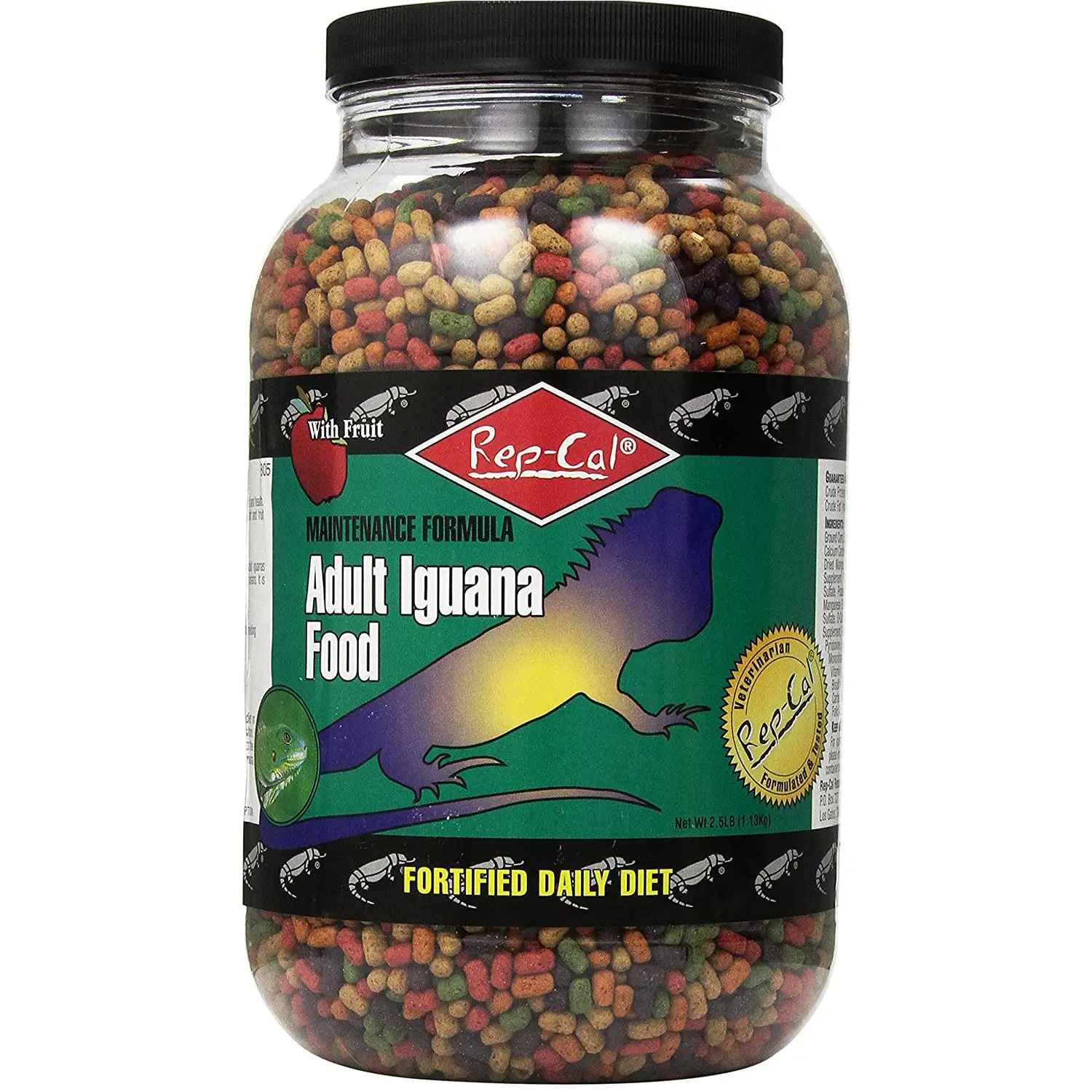
- Brand Rep-Cal
- Item Weight 1 Pounds
- Adult
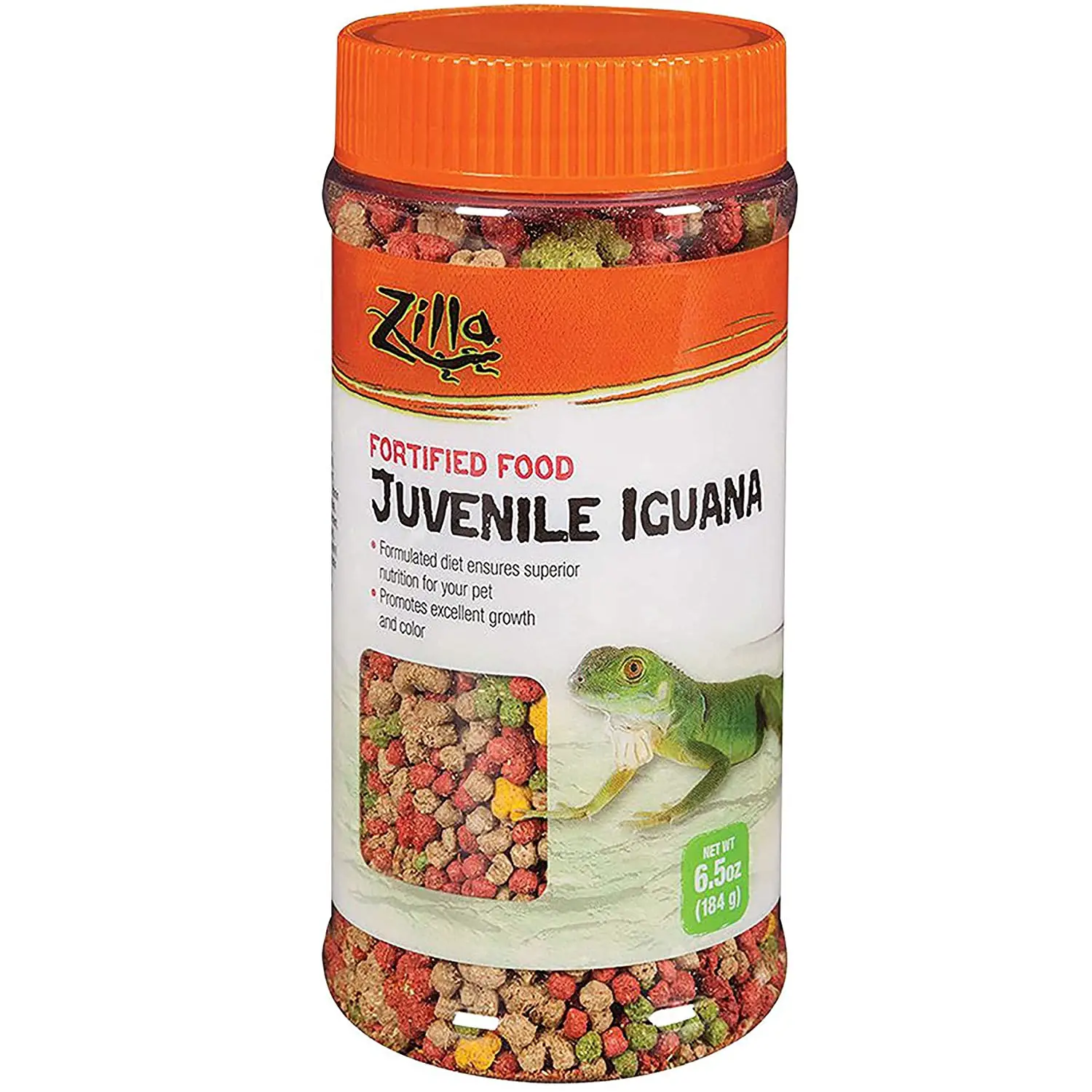
- Brand Zilla
- Flavor Plants
- Item Weight 0.5 Pounds
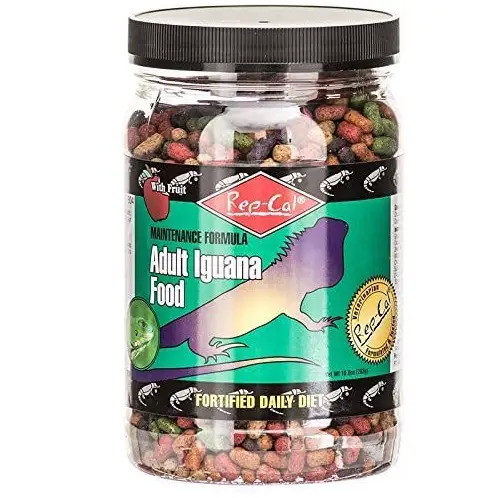
- Brand Rep-Cal
- Item Weight 10 Ounces
- Adult
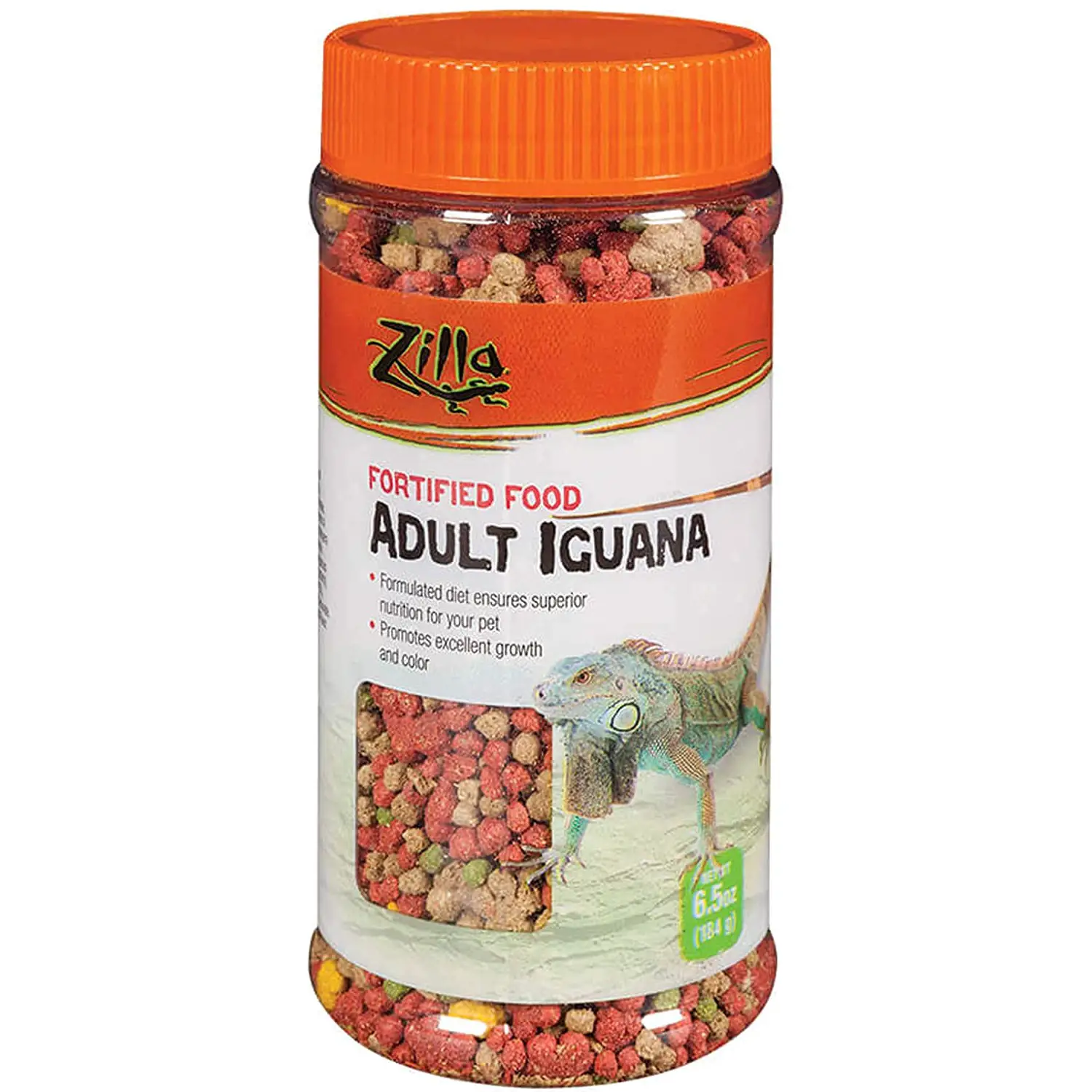
- Brand Zilla
- Item Weight 0.5 Pounds
- Dry
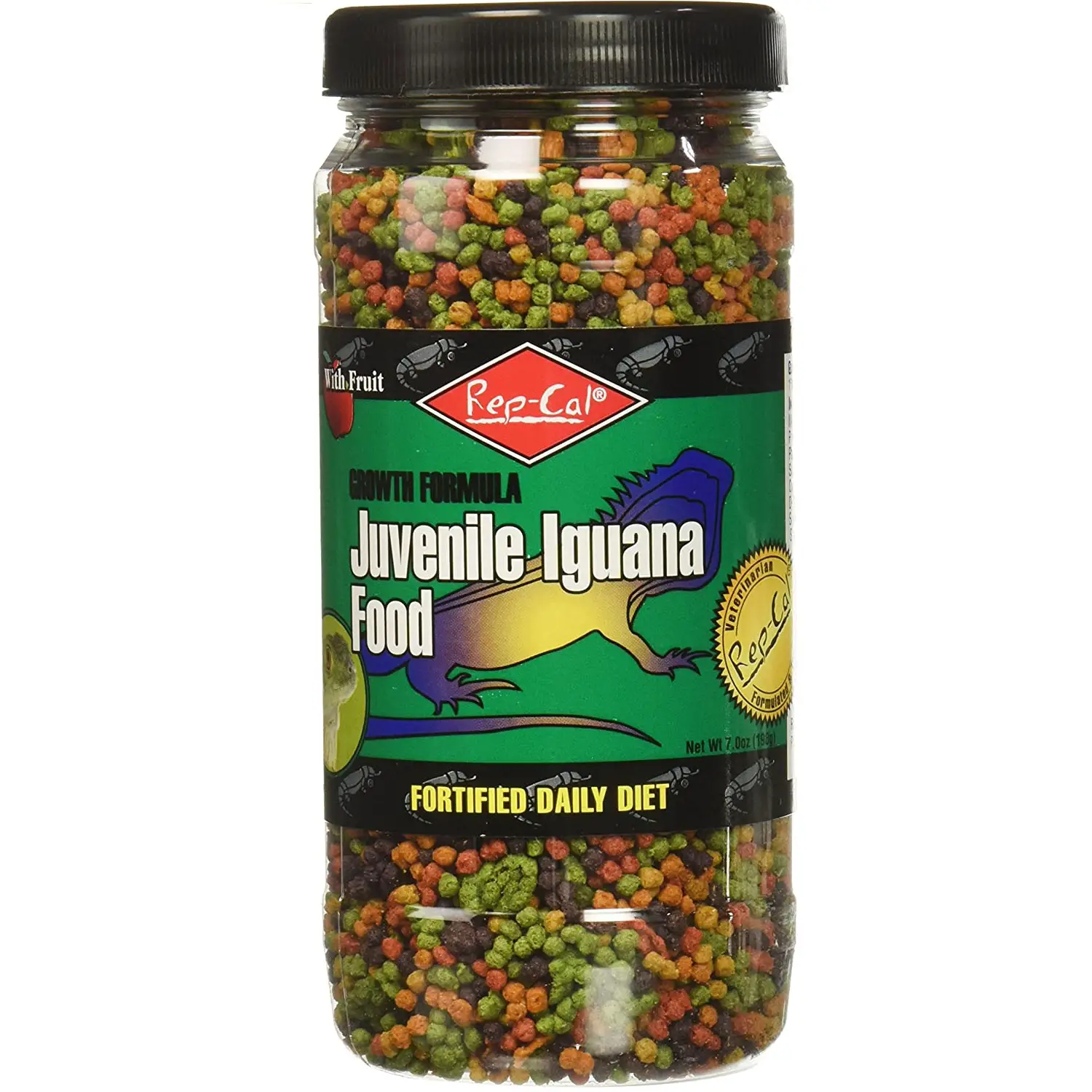
- Brand Rep-Cal
- Item Weight 0.5 Pounds
- Adult
Choose the Best Food for Iguana
Customer’s Choice: the Best Rated Food for Iguanas
4 users answered this survey. Please help us improve this review!
Iguanas make interesting and exotic pets. If you are a new iguana owner, you may be wondering what the best food for iguanas is. There are many different opinions on this topic, but this article will provide you with all the information you need to make an informed decision about your iguana’s diet. This comprehensive guide will also review some of the most popular food options for iguanas and give you some tips on how to choose the right food for your pet.
Rep-Cal: Food for Adult Iguana, 1 kg
 Looking for a food that will provide your adult iguana with 100-percent complete daily nutrition? Look no further than Rep-Cal! This food is produced in the form of pellets and is rich in calcium and vitamin D3, two essential nutrients for iguanas.
Looking for a food that will provide your adult iguana with 100-percent complete daily nutrition? Look no further than Rep-Cal! This food is produced in the form of pellets and is rich in calcium and vitamin D3, two essential nutrients for iguanas.
Rep-Cal also contains natural plant and fruit ingredients, including papaya, mango and strawberries, which provide optimal levels of vitamins and minerals.
Plus, the pellets are easy to digest and can be fed moistened in water or fruit juice. Whether you’re looking to ensure proper growth and health for your iguana or simply provide them with a balanced diet, Rep-Cal is the perfect solution.
Fortified Zilla Reptile Food for Juvenile Iguana, 184 g
 Is your iguana a picky eater? If so, try feeding them Fortified Zilla Reptile Food for Juvenile Iguana. This food is packed with all the nutrients and vitamins your iguana needs to grow big and strong.
Is your iguana a picky eater? If so, try feeding them Fortified Zilla Reptile Food for Juvenile Iguana. This food is packed with all the nutrients and vitamins your iguana needs to grow big and strong.
It’s also ready-to-eat, making it super easy to feed. Plus, it comes in kibble form, which makes it perfect for those little mouths. And if that’s not enough, this food also smells like real fruit!
Your iguana will love the natural flavor and vibrant color this food provides. Not to mention, you’ll love the long lifespan your iguana will have thanks to this food.
Adult Iguana Food: Rep-Cal Srp00804, 283 g
 Looking for a food that will ensure your iguana gets complete and balanced nutrition? Look no further than Fortified Zilla Reptile Food for Juvenile Iguana.
Looking for a food that will ensure your iguana gets complete and balanced nutrition? Look no further than Fortified Zilla Reptile Food for Juvenile Iguana.
This food contains all the essential vitamins and minerals your iguana needs to stay healthy, including vitamin D3, B12, A, E and calcium. It also contains ground corn and vegetable oil for added energy and nutrition.
Plus, it’s veterinarian-recommended for both adult iguanas and juvenile iguanas. So, you can rest assured that your pet is getting the very best care possible.
Reptile Food for Adult Iguana: Fortified Zilla Product, 184 g
 Iguana owners know that their animals require a specific diet in order to stay healthy and look their best. That’s where the Fortified Zilla Reptile Food comes in. It’s designed specifically for adult iguanas, and is packed with all the essential minerals, proteins, and vitamins they need to grow big and strong.
Iguana owners know that their animals require a specific diet in order to stay healthy and look their best. That’s where the Fortified Zilla Reptile Food comes in. It’s designed specifically for adult iguanas, and is packed with all the essential minerals, proteins, and vitamins they need to grow big and strong.
This food can be used as an addition to the daily diet or as an everyday-meal. This product is safe for all types of reptiles.
Plus, the extruded form makes it easy to mix with other foods such as fruits and vegetables. You can moisten it to make it even more palatable. Keep your iguana looking great with the Fortified Zilla Reptile Food!
Juvenile Iguana Food: Rep-Cal SRP00801, 198 g
 Reptiles are fascinating creatures. They grow fast and have healthy appetites, so they need the right kind of food to support their development.
Reptiles are fascinating creatures. They grow fast and have healthy appetites, so they need the right kind of food to support their development.
Juvenile Iguana Food by Rep-Cal is a great option for reptilian youngsters. This food contains calcium, vitamins D3, E, A and B12 to help them grow big and strong. It also has a natural fruit taste and smell that will keep your little ones happy all day long.
Best of all, Juvenile Iguana Food is made with dried wheat, vegetables and fruits so it’s healthy and safe for your pet. You can offer this food for your home reptiles as a daily meal.
Buyer’s Guide
Typical appearance and behavior of iguanas
Iguanas are typically green in color, but can also be brown, black, or blue. They have a long tail and spikes down their back. Iguanas are diurnal (meaning they are active during the day), and spend most of their time in trees or bushes. They are omnivorous (eating both plants and animals), and their diet consists mostly of leaves, flowers, fruit, and insects.
Iguanas are popular pets, in part because they are relatively easy to care for.
The behavior of the iguanas also needs to be taken into account when deciding what to feed them. Iguanas are territorial and may become aggressive if they feel their territory is being threatened. Moreover, iguanas are known to be picky eaters and may refuse to eat certain foods such as leafy greens.
The iguanas can live for up to 20 years, so it is important to make sure they are getting the right food from a young age. Moreover, you should provide the best habitat for your iguana to live in, which includes a proper temperature range and plenty of branches for them to climb.
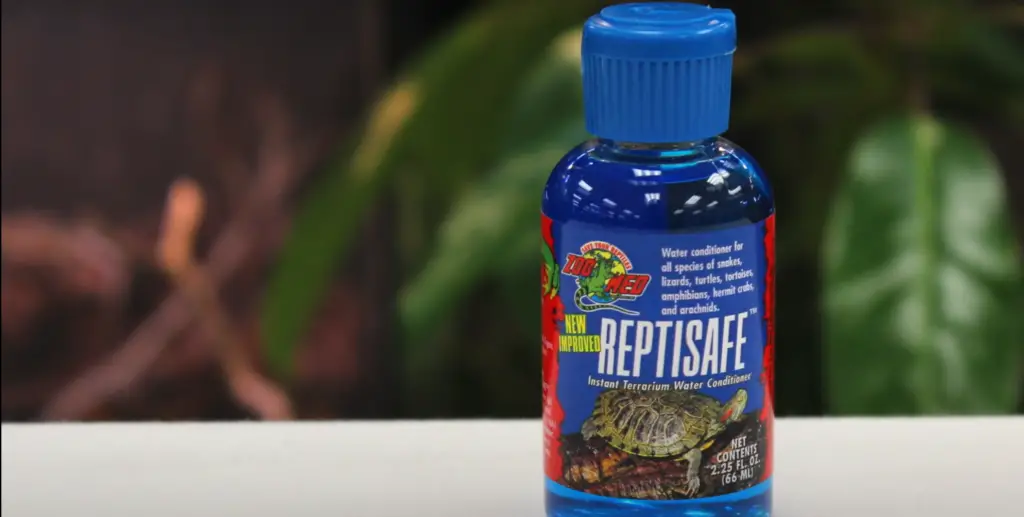
The best iguanas to be pets are the hand-raised ones. It is recommended to choose an iguana that is at least six months old and has been eating a varied diet. There are several different food options available for iguanas, and the best one for your pet will depend on its age, size, and dietary needs [1].
Signs of a healthy iguana
A healthy iguana will have a bright green color, clear eyes, and clean skin. Their body should be firm to the touch, with no sign of swelling or bloating.
Iguanas typically have an excellent appetite and will eat regularly throughout the day. They should also drink plenty of water; make sure their water dish is always clean and full.
If your iguana is not eating, drinking, or behaving normally, it is important to take them to a veterinarian as soon as possible.
Basic things you need to know about iguanas
Iguanas are a type of lizard that is native to tropical and subtropical regions. Iguanas are popular pets because of their docile nature and their ability to be trained. Iguanas can live up to 20 years in captivity if they are properly cared for.
Iguanas are herbivores, which means that they only eat plants. In the wild, iguanas eat a variety of foliage, flowers, and fruits. Iguanas need a diet that is high in fiber to stay healthy.
There are a few commercially-available foods that are specifically designed for iguanas. These foods usually contain all of the nutrients that an iguana needs to stay healthy. However, you can also feed your iguana a variety of fresh fruits and vegetables.
The Various Iguana Species
There are many different species of iguanas, but the two most common types are green iguanas and red iguanas.
Green iguanas are the most popular type of pet iguana. They can grow to be up to six feet long and weigh up to 9 kg. Green iguanas are usually a bright green color with dark spots.
Red iguanas are not as popular as green iguanas, but they can make great pets too. Red iguanas can grow to be up to four feet long and weigh up to eight pounds. Red iguanas usually have a reddish-brown coloration with lighter spots.
Both green and red iguanas need a diet that contains plenty of leafy greens, vegetables, and fruits. Iguanas also need a source of calcium, such as cuttlebone or calcium powder.
Green Iguanas Background and Natural Diet
Green iguanas are native to Central and South America.
Wild green iguanas also consume a lot of insects. However, pet green iguanas should not be given insects as part of their diet.A green iguana’s diet should consist of:
- 50% leafy greens
- 20% vegetables
- 30% fruit
Some good leafy greens for green iguanas include collard greens, dandelion greens, endive, escarole, kale, mustard greens, and turnip greens.
Some good vegetables for green iguanas include bell peppers, broccoli, carrots, celery, cucumber, squash, and sweet potato.
Some good fruits for green iguanas include apples, bananas, berries, cantaloupe, grapes, mangoes, melons, and papaya.
Green iguanas also need a source of calcium in their diet. This can be provided by giving them cuttlebone or calcium powder.
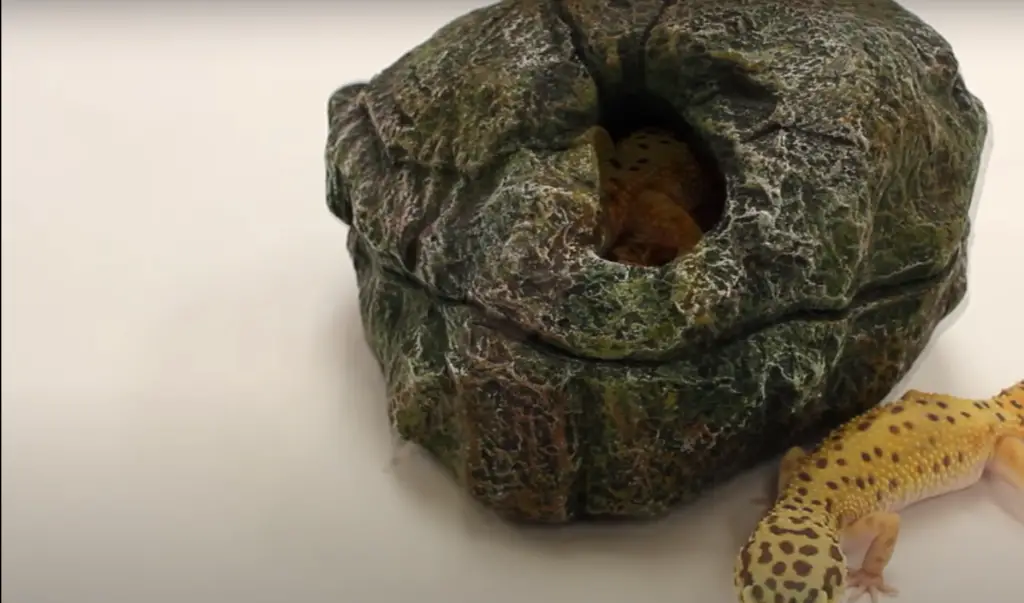
Water is an important part of an iguana’s diet. Iguanas should have access to fresh water at all times. Iguanas will also drink from rain puddles and dewdrops on plants [2].
What do iguanas eat as pets?
Leaves and vegetables
Iguanas are herbivores and in the wild, their diet consists mostly of leaves. In captivity, however, you will need to provide them with a more varied diet to ensure they get all the nutrients they need.
Vegetables such as collard greens, turnip greens, mustard greens, and dandelion greens should make up the majority of their diet. You can also feed them other leafy vegetables like kale, romaine lettuce, escarole, endive, and Swiss chard.
- Iguanas need a lot of vegetables in their diet to stay healthy.
- The best vegetables for iguanas include collard greens, turnip greens, mustard greens, and dandelion greens.
- You can also feed them other leafy vegetables like kale, romaine lettuce, escarole, endive, and Swiss chard.
- Vegetables should make up the majority of an iguana’s diet.
Iguanas also need to eat a lot of plants to get the fiber they need for their digestive system to work properly. A lack of fiber can lead to problems such as constipation and impaction, which can be fatal. Be sure to offer them a variety of different vegetables so they can get the fiber they need.
You should also provide them with a calcium supplement since they are not able to get enough calcium from plant sources. Without enough calcium, iguanas can develop metabolic bone disease, which is a serious condition that can be deadly. If you have an adult iguana, you will need to provide them with food that is high in protein so they can maintain their muscle mass.
Useful Fruits for iguanas
Fruits should only make up a small part of an iguana’s diet, but they can be a good source of nutrients. Some of the best fruits for iguanas include mangoes, papayas, cantaloupes, and honeydews. You can also feed them other fruits like apricots, oranges, grapes, and strawberries.
- Fruits should only make up a small part of an iguana’s diet.
- The best fruits for iguanas include mangoes, papayas, cantaloupes, and honeydews.
- You can also feed them other fruits like apricots, oranges, grapes, and strawberries.
Iguanas need a lot of water to stay hydrated, so be sure to provide them with a large bowl of freshwater. You should also mist their cage daily to help them stay hydrated. If you live in a dry climate, you may need to mist them multiple times per day [3].
What flowers can iguanas eat?
While flowers are not a necessary part of an iguana’s diet, they can be a nice treat for them. Some of the best flowers for iguanas include hibiscus, nasturtiums, roses, and daisies. Avoid giving them flowers that have been treated with pesticides or other chemicals.
- The best flowers for iguanas include hibiscus, nasturtiums, roses, and daisies.
- Avoid giving them flowers that have been treated with pesticides or other chemicals.
Iguanas are creatures of habit and will usually eat the same foods every day. It is important to offer them a variety of different foods so they can get the nutrients they need. Be sure to consult with your veterinarian before making any changes to your iguana’s diet.
Why should you feed the iguanas with commercial foods?
There are a variety of reasons why you should feed your iguana commercial foods. One reason is that it can be hard to meet all of their nutritional needs with just vegetables and fruits. Another reason is that iguanas typically prefer the taste of commercial foods over vegetables and fruits.
- One reason to feed your iguana commercial food is that it can be hard to meet all of their nutritional needs with just vegetables and fruits.
- Another reason is that iguanas typically prefer the taste of commercial foods over vegetables and fruits.
- Commercial foods are also more convenient than feeding them a variety of different vegetables and fruits.
If you decide to feed your iguana commercial food, be sure to choose a high-quality product that is specifically designed for iguanas. Avoid products that contain fillers or artificial ingredients. Be sure to read the label carefully so you know exactly what you are feeding your iguana.
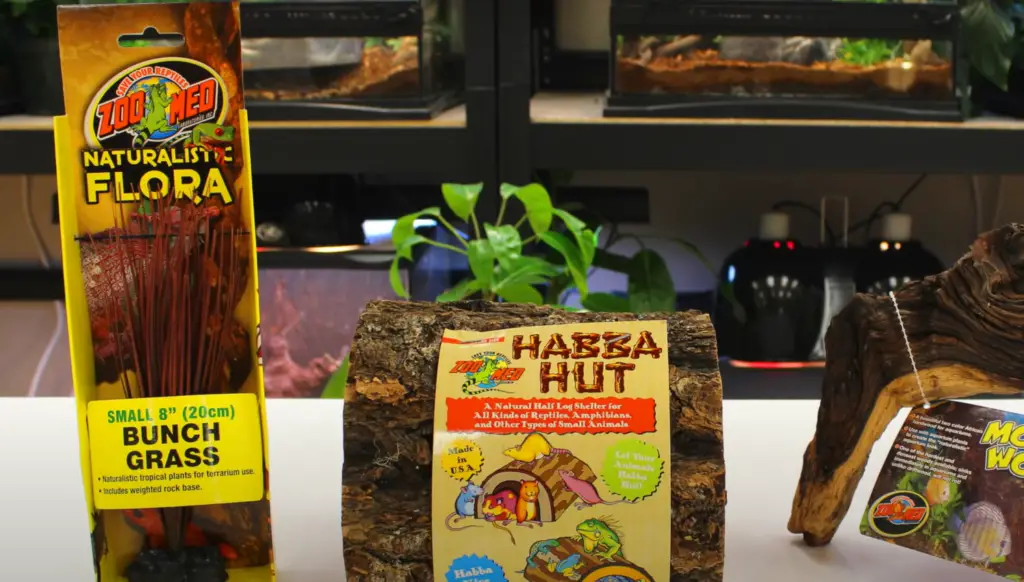
The best commercial foods are made with natural ingredients and contain all of the nutrients that iguanas need such as protein, fiber, calcium, and vitamins.
- The best commercial foods are made with natural ingredients and contain all of the nutrients that iguanas need such as protein, fiber, calcium, and vitamins.
- Some of the best brands include Mazuri Iguana Diet, Repashy Superfoods Iguana Menu Line, Zoo Med Natural Grassland Iguana Food, and Harrison’s Adult Iguana Diet.
A Word on Animal Protein
You may have heard that you should never feed your iguana animal protein. This is not necessarily true. While too much animal protein can be harmful to iguanas, a small amount can be beneficial. Animal protein provides them with essential amino acids that they cannot get from plant-based proteins.
- A small amount of animal protein can be beneficial for iguanas.
- Animal protein provides them with essential amino acids that they cannot get from plant-based proteins.
- Too much animal protein can be harmful to iguanas, so it is important to feed them a balanced diet that includes both plant- and animal-based proteins.
If you decide to feed your iguana animal protein, be sure to choose a lean source that is low in fat and cholesterol such as chicken, turkey, or fish. Avoid feeding them fatty meats such as pork or beef. You should also avoid feeding them live prey as this can lead to aggression.
How often do iguanas eat?
The daily feeding schedule for an iguana is typically two meals, one in the morning and once at night. Iguanas will also drink water daily, either from a bowl or by licking moisture off of leaves.
Baby iguanas need to eat more frequently than adults, about three to four times per day. They should be offered food every time they wake up from a nap, which is usually every few hours.
Iguanas will also drink water daily, either from a bowl or by licking moisture off of leaves.
The daily meal of the juveniles should consist of:
- One part dark, leafy greens like turnip greens, collard greens, or mustard greens
- One part other vegetables like squash, sweet potatoes, carrots, or green beans
- A small amount of fruit
The adult iguana diet is similar to that of the juvenile diet but with a few key differences. The main difference is that adults should have more dark, leafy greens and less fruit in their diet.
The adult iguana diet consists of:
- Two parts dark, leafy greens like turnip greens, collard greens, or mustard greens
- One part other vegetables like squash, sweet potatoes, carrots, or green beans
- A small amount of fruit
Iguanas are mostly herbivores, but they will occasionally eat insects or other small animals. In the wild, iguanas typically eat a diet of leaves, flowers, fruits, and vegetables. In captivity, however, iguanas can be fed a variety of different foods [4].
Things to Remember When Feeding Your Iguana
A lot of people prefer to feed their iguanas live food, but this isn’t always the best option. If you do choose to feed your iguana live food, be sure to wash your hands thoroughly afterward. Iguanas can also be fed a diet of vegetables and fruits.
It’s important to remember that iguanas are omnivores and need a diet that is high in fiber. Some good vegetables to feed your iguana include:
- collard greens
- mustard greens
- turnip greens
- romaine lettuce
- kale
- broccoli
- cucumbers
- pineapple
Some good fruits to feed your iguana include:
- figs
- mango
- papaya
- bananas
- kiwi fruit
When choosing a food for your iguana, it’s important to read the ingredient list and avoid foods that contain artificial colors or flavors. You should also avoid giving your iguana processed foods like hot dogs or pizza.
What vitamins and mineral supplements should get iguanas?
Iguana owners should consider adding a multivitamin supplement to their pet’s diet. Iguana-specific multivitamins are available at most pet stores, and they typically contain the vitamins and minerals that iguanas need to stay healthy.
Some of the key nutrients that these supplements provide include vitamin A, which helps keep iguanas’ skin healthy; vitamin D, which aids in the absorption of calcium; and minerals such as phosphorus and magnesium, which are essential for bone health.
If you are not sure whether your iguana needs a multivitamin supplement, consult with a veterinarian. He or she will be able to recommend a specific supplement and help you create a diet that meets your iguana’s nutritional needs.
Iguana owners should also consider adding a calcium supplement to their pet’s diet. Calcium is important for maintaining healthy bones, and most iguanas do not get enough of it from their regular diet [5].
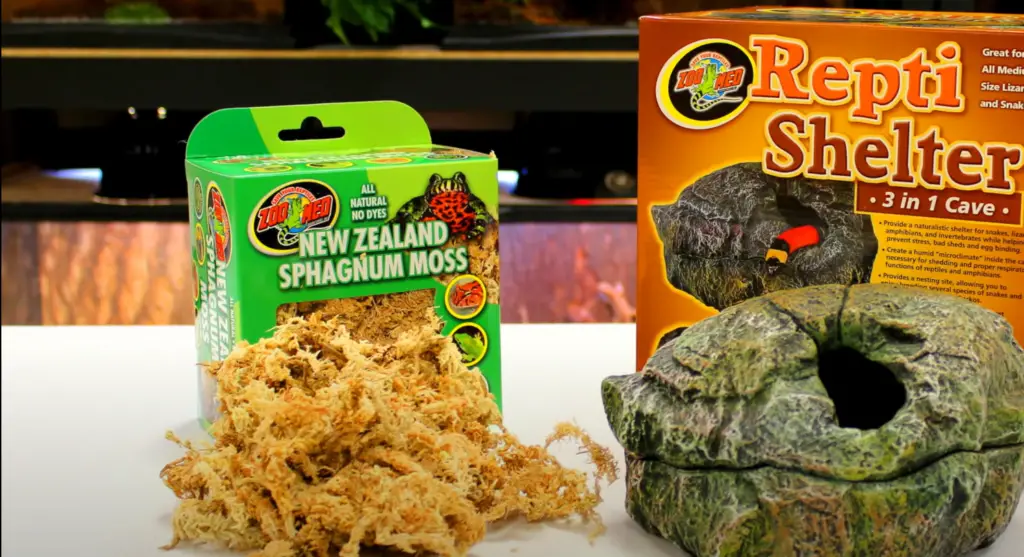
Multivitamin supplements should be given to iguanas regularly; most manufacturers recommend that they be given once or twice a week. However, it’s important to read the label on the supplement to be sure that you are giving your iguana the correct dosage.
Why does an iguana need water?
Iguanas need water to help digest their food, as well as for cooling purposes. Without a constant source of freshwater, they can quickly become dehydrated and even die. It’s important to provide your iguana with a bowl of clean water that is large enough for it to soak in if desired. Some owners also mist their iguanas with water several times a day to help keep them cool.
Conversely, if you live in a humid climate, be sure to monitor the water level carefully and refill as needed to prevent bacteria growth.
If you don’t provide iguanas with water, they will drink from puddles and other water sources on their own, but this can increase the risk of them becoming ill. Among the illnesses that can be contracted from dirty water are salmonella and leptospirosis, both of which can be deadly to iguanas.
FAQ
What are iguanas’ favorite food?
Iguanas are omnivorous and like a variety of fruits, vegetables, and insects.
What should I give my iguana as a treat?
Your iguana will love mealworms, crickets, or wax worms. This food is high in protein and fat, which iguanas need for energy.
Iguanas also enjoy cantaloupe, honeydew, strawberries, watermelon, and other fruits. Vegetables they like include broccoli, carrots, green beans, romaine lettuce, and spinach.
Is it okay to give my iguana sugarcane?
Yes! Sugarcane is a healthy treat for iguanas. The sugarcane will not only give them a sweet treat, but it will also help keep their beaks trimmed.
Iguanas also enjoy fresh, clean water to drink. Make sure your iguana’s food and water dishes are cleaned regularly to prevent bacteria from building up.
What foods are toxic to iguanas?
Iguanas should not eat avocado, citrus fruits, rhubarb, or tomatoes. These foods are toxic to iguanas and can make them sick. Be sure to keep your iguana’s diet healthy and avoid giving them any harmful foods. A balanced diet is a key to keeping your iguana healthy and happy!
How many times a day should an iguana eat?
Iguanas should eat twice a day. Feed them in the morning and evening, and make sure they have access to fresh water at all times.
Do iguanas eat carrots?
Yes! Iguanas enjoy a variety of vegetables, including carrots. Feed your iguana a small piece of carrot as a treat. The carrot is useful for iguanas because it is high in Vitamin A, which is good for their eyesight.
Can iguanas eat human food?
No! Iguanas should not eat human food. This food is not nutritionally balanced and can make iguanas sick. Stick to a diet of fruits, vegetables, and insects to keep your iguana healthy.
Do iguanas eat tomato plants?
No! Iguanas should not eat tomato plants. The leaves, stems, and fruit of the tomato plant are toxic to iguanas and can make them sick.
Do iguanas eat lettuce?
Yes! Iguanas enjoy a variety of vegetables, including romaine lettuce. Feed your iguana a small piece of romaine lettuce as a treat. Lettuce is useful for iguanas because it is high in Vitamin A and beta carotene, which are good for their eyesight.
Which iguana is best as a pet?
There is no one-size-fits-all answer to this question. Some people may prefer a smaller iguana, like a green iguana, while others may want a larger iguana, like an Amazon or Cuban rock iguana. It is important to do your research and choose the iguana that is best suited for your lifestyle and personality.
Is it better to have a male or female iguana?
Some people like to have a male iguana as a pet because they are less aggressive than female iguanas. Other people may prefer to have a female iguana because they tend to be smaller and less temperamental than male iguanas. If you want to choose the right iguana, you should consider some factors:
- How much space do you have for an iguana?
- How aggressive is your iguana?
- What kind of food does your iguana like?
- How much time can you spend caring for an iguana?
Do iguanas like to be held?
Some iguanas like to be held, while others prefer to be left alone. It is important to respect your iguana’s wishes and only hold them when they are comfortable. If your iguana does not like to be held, you can still enjoy their company by putting them in a cage or enclosure where they can roam around.
Does iguana bite hurt?
Iguana bites can be painful, but they are not usually dangerous. Make sure to wash the bite wound with soap and water and apply a bandage to keep the area clean. If you experience any swelling or fever after being bitten by an iguana, seek medical attention right away.
What does it mean when your iguana licks you?
Iguana licking is a sign of affection. Iguanas may lick their owners as a way of showing they love them. It is important to remember that iguanas are not dogs and should not be treated like pets. They are wild animals and should be respected for what they are. With that said, it is still enjoyable to have an iguana as a pet and form a strong bond with them.
Can an iguana bite your finger off?
No! Iguanas are not known to be aggressive animals and are not typically dangerous. However, it is important to always be aware of your iguana’s behavior and never put your hands in their mouth. If you are bitten by an iguana, seek medical attention.
Why do iguanas’ tails fall off?
Iguana tails fall off for several reasons, including injury, infection, and stress. If you notice that your iguana’s tail is falling off, take them to a veterinarian right away. The vet will be able to diagnose the problem and provide treatment if necessary. Iguana tails can grow back, but it may take a while for them to fully regrow.
What do I do when my iguanas tail falls off?
If your iguana’s tail falls off, take them to a veterinarian right away. The vet will be able to diagnose the problem and provide treatment if necessary.
Why is my iguana turning black?
Iguana turning black can be a sign of illness or stress. If you notice your iguana is turning black, take them to a veterinarian right away for diagnosis and treatment.
Do iguanas need a heat lamp at night?
No, iguanas do not need a heat lamp at night. Factually, they should have a cool environment to sleep in so they can get the rest they need. If you have an iguana that is not sleeping well, you may need to lower the temperature in their enclosure.
How many times can an iguana lose its tail?
Iguanas can lose their tails up to three times in their lifetime. If your iguana loses its tail, take them to a veterinarian right away for diagnosis and treatment.
Useful Video: Iguana Diets: What To Feed Your Iguana
Conclusion Paragraph
So what is the best food for iguanas? The answer to that question depends on the age and size of your iguana, as well as its individual dietary needs. However, there are a few general rules that can help you choose the best food for your iguana.
First, make sure to provide plenty of fresh vegetables and fruits. Iguanas need both protein and carbohydrates, so try to offer a variety of different foods. And finally, always consult with an expert before making any changes to your iguana’s diet. With the right food, you can help your iguana stay healthy and happy for years to come!
References:
- https://www.petco.com/content/petco/PetcoStore/en_US/pet-services/resource-center/caresheets/tropical-iguana.html
- https://www.thesprucepets.com/iguanas-as-pets
- https://www.petco.com/content/petco/PetcoStore/en_US/pet-services/resource-center/caresheets/tropical-iguana.html
- https://vcahospitals.com/know-your-pet/iguanas-feeding
- https://www.lizards101.com/iguana-diet-2-importance-supplements-vitamins/

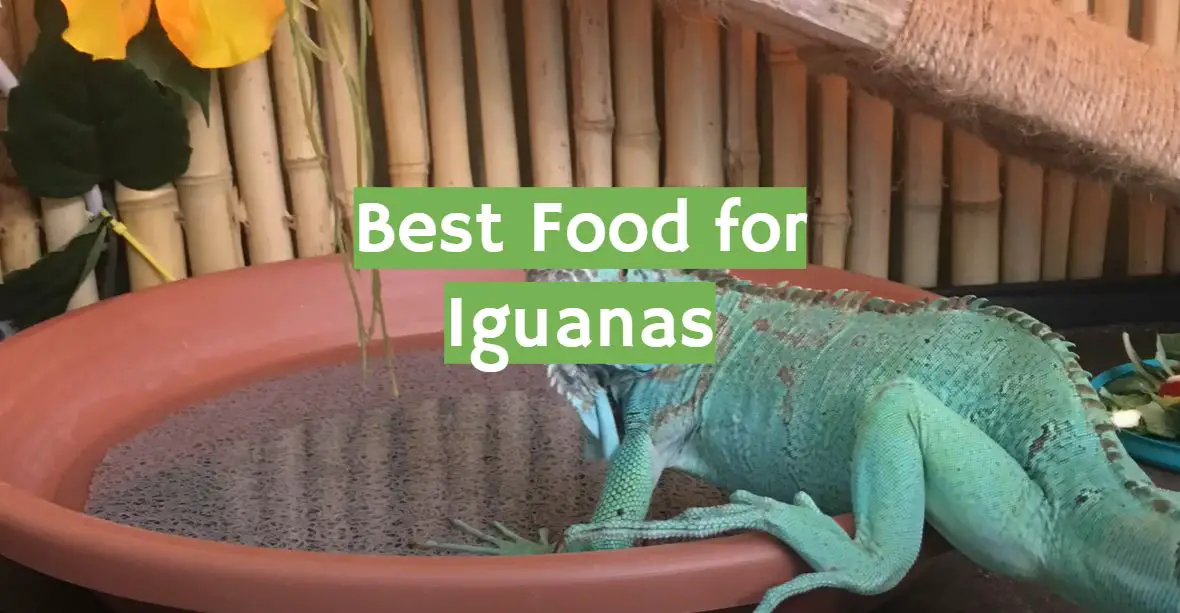




Leave a Review